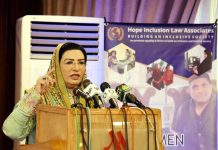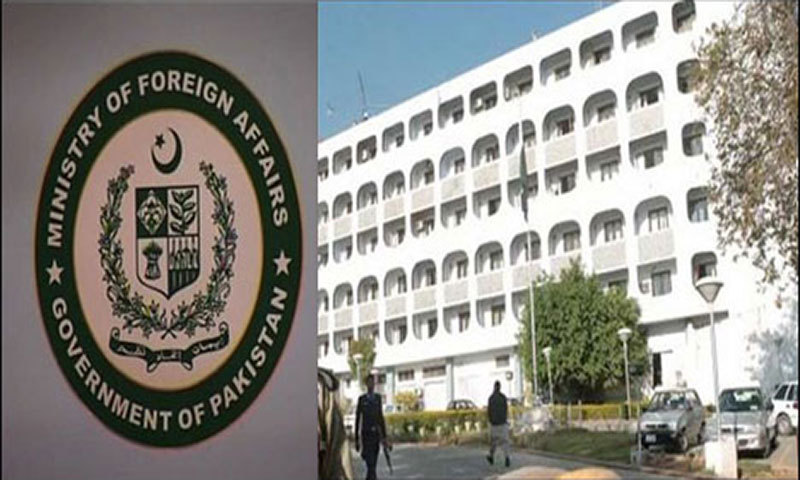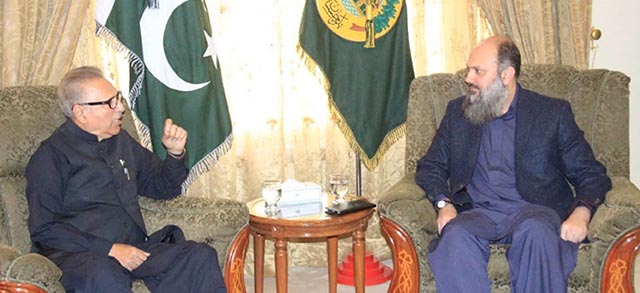NEW DELHI: Darul Uloom Deoband, landmark Islamic seminary, is back in the media as the ‘hub of terrorism,’ a week after Shakir Ansari, a 22-old-resident, was arrested in the town, some 180km away from the national capital, on charges of being a sympathiser of a terrorist outfit.
“Again they are making a terrorist out of us. This is why we do not read Hindi newspapers. Such utter disregard for facts,” said Mohammad Saleem, 26, a cleric at the seminary, as he was referring to the Hindi press even as the Indian police released 10 of the 13 youth arrested due to lack of evidence linking them to the banned outfit.
Spin-off reports in the local Hindi press after the May 3 arrests included one about Shakir Ansari, a 22-old-resident, allegedly planning a ‘terrorist attack’ on the Bharatiya Janata Party lawmaker Suresh Rana, an accused in the 2013 Muzaffarnagar riots. In February, the lawmaker had stirred a controversy by suggesting that Muslims living in Deoband planned “Pathankot-like terror attacks.”
Saleem’s issue with what he sees as a concerted media campaign to foist the badge of terrorism on the Islamic institution is that it is one of a piece with similar attempts of Hindutva groups owing allegiance to the BJP and the Sangh Parivar when no intelligence agency has yet found any evidence of the seminary fomenting terror.
The seminary, the most influential institution in the Islamic world that frames religious discourse in the subcontinent, is retreating further into its shell at being besieged. Research scholars, teachers, students and sympathisers betray a disturbing narrative, one in which the members of the Deoband community are on the defensive despite not having done anything that runs afoul of the law.
The discomfiture is palpable — at having their nationalist credentials called into question and the badge of terrorism being pinned on the institution every time there is a terror attack or arrest in India and abroad; and at the simmering tension and sharp polarisation in the area three years after communal violence in nearby Muzaffarnagar claimed over 60 lives and displaced over 50,000 people.
Sitting on a chair in one of the rooms in the grand building, seminary spokesperson Maulana Ashraf Usmani explains how the situation came to such a pass. “It is not just fatwa alone. Everything about Darul Uloom is up for demonisation,” he said. Seminary’s Vice Chancellor (mohtamim) Maulana Qasim Nomani, a mufti by training, describes his dilemma every time “a journalist from Delhi, unaware of Deoband’s glorious past, interrogates us about our patriotism.”
“There is an attempt to erase our contribution in the freedom struggle. Our statements are manipulated to sound like we are asking Muslims to become nation-loving citizens, as if they generally do not love their country. Every time we have to shout at the top of our voice about our nationalist credentials,” he said. He said that love and sacrifice for the nation was inherent in the fabric of the seminary since it was set up in 1866 in the aftermath of the 1857 War of Independence.
“People are not aware about the contribution of religious scholars from Deoband to the freedom movement. Maulana Mahmood-ul-Hasan [widely regarded as the first student at Darul Uloom Deoband and who later taught at the seminary] was a part of the nationalist government-in-exile set up in 1915 in Kabul which was headed by Raja Mahendra Pratap and had Maulana Barkatullah as foreign minister, in what is known as the Silk Letter Conspiracy.”
He also said that Deoband’s founding fathers such as Maulana Husain Ahmad Madani and Maulana Ozair Gul were arrested and kept under detention on the island of Malta for a number of years. In December 1919, Mahmood-ul-Hasan gave the fatwa of “tark-e-mawalat (boycott of goods)” to boycott every English product, Maulana Usmani pointed out. “This was one of the effective instruments against the colonial rulers which later even Mahatma Gandhi adopted,” he said.
Later the leaders of Deoband supported Mahatma Gandhi and opposed the two-nation theory of Mohammad Ali Jinnah. “Tell me about any other organisation in India with such a nationalist and glorious past. Those who are questioning people’s patriotism need to come clean about their own allegiance to the constitution and their role in freedom movement,” he said.
A subdivision of Saharanpur district in the western part of Uttar Pradesh, Deoband is a small town which is essentially defined by its association with the religious seminary. But beyond the confines of the seminary housing 5,000 students, the urban population of the tow has a 60:40 Muslim-Hindu ratio while the rural population is more or less equally divided. The interwoven social fabric has ensured that the town has been spared of communal violence for the longest time.
“Even after the demolition of the Babri masjid, no Hindu-Muslim clash was reported. When Muzaffarnagar, Shamli and other places in the area were burning in 2013, Deoband, just 20 kilometres from the riots epicentre, stayed calm,” said Arvind Singhal, chairman of the local institute, the Infinity College of Management.
Kuldeep Saith, whose family migrated from Pakistan decades before the 1947 partition and who is one of the oldest residents of Deoband, remembers the time he used to play badminton with the children of senior clergy at the local club, and of mango parties thrown by then-vice chancellor Maulana Marghub-ur-Rehman in the eighties.
“There was people-to-people contact between the seminary and those outside. But that culture of interaction does not exist anymore because of the communication gap,” he said. Hindutva groups have exploited this gap and deepened the divide among people,” he added. Saith decries the baseless reportage of the local press and the slandering of Muslims without any evidence and proper trial.
This article originally appeared in The Hindu newspaper











